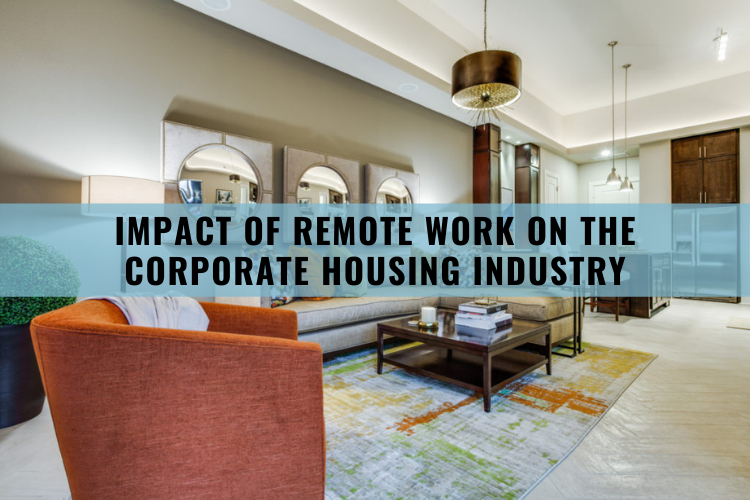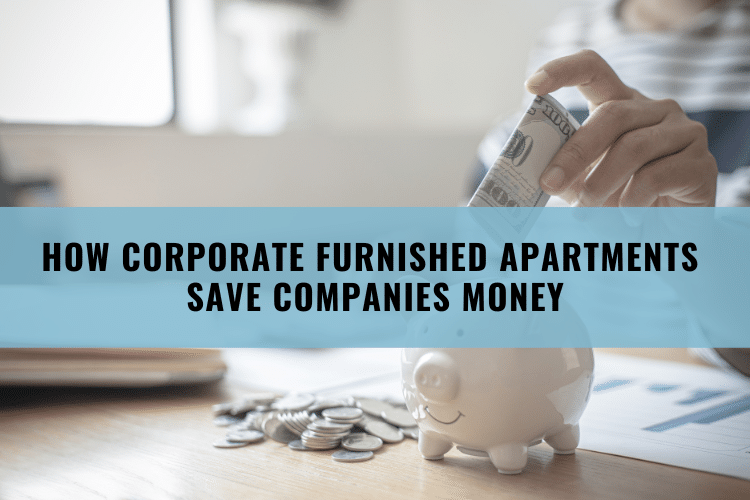At the onset of the coronavirus pandemic, many companies transitioned their employees to work from home. Now that there is a drive to achieve a sense of normalcy it is necessary to examine the impact of remote work on the corporate housing industry.
In 2020, much of the nation was under stay at home orders, with employees working from home instead of driving to the office or traveling to another city. Employees were working from home and communicating via a computer screen and video conferencing technology.
As the second half of 2021 arrived and business personnel traveled again, many companies were navigating a new hybrid environment. This means some employees will continue to work from home while others will be in the office.
What does this mean for the corporate housing industry? The industry that was disappearing almost a year ago is now experiencing a resurgence due to individuals who either cannot or do not choose to work remotely. For this reason, corporate housing may need to adjust its target market.
If It Isn’t Broken, Don’t Fix It
While changes in the corporate housing industry continue to evolve and a sense of normalcy is returning, many executives are traveling for work.
The corporate housing industry welcomes these individuals with open arms but will have to compete for their business. This can mean offering special perks for guests such as:
- Exemplary customer service
- Booking incentives
- Welcome baskets
- Improved housekeeping and safety standards
- Discounts
The Remote Worker Redefined
As businesses grapple with establishing and maintaining a hybrid workplace for both in person and remote employees, it is important to note that remote employees will need to collaborate in person on certain projects.
Some of the ways in which the remote worker is currently being redefined are:
- Working from home part-time while spending some time in the office each month. The pandemic showed employers that some tasks are easily handled remotely while others require a face-to-face approach, which essentially yielded the hybrid workplace environment.
- Working in person for special projects. Even if an individual works remote the majority of the time, there will likely be business projects that require in-person collaboration and teamwork.
And as the nation continues to grapple with the effects of the pandemic, the role of the remote worker will continue to develop and change to stay relevant, and the corporate housing industry will have to accommodate these needs.
What the Corporate Housing Industry Has to Offer the Business Traveler and the Redefined Remote Worker
Whether it is an executive traveling for business or a redefined remote worker on a special assignment, corporate housing has perks for both, including:
- Less transient locations. Of all the hospitality housing options, corporate housing tends to be in residential neighborhoods. Instead of having hundreds of people coming and going in a hotel, a corporate apartment offers more privacy as guests are typically there long-term rather than a couple of nights.
- Staying away from hot spots. When cities are tagged as a hot spot for illness, travelers may wish to stay outside the city limits. Typically, corporate apartments offer complexes in both urban and suburban locations so executives and business travelers can choose the option that best suits their needs.
- Lodging that accommodates longer assignments. For special projects and assignments that require longer travels of up to a month or more, a corporate apartment is the best solution. With the apartment featuring a primary bedroom, bathroom, living area, kitchen, and separate dining area, guests have room to spread out instead of being confined to one room. A full-sized kitchen allows guests to cook and eat their meals at home instead of being forced to go to a restaurant or get takeout.
- Peace of mind. The corporate housing industry is mindful of the increased safety precautions guests expect and continues to implement best practices in cleaning protocols.
When it comes to analyzing the impact of remote work on the corporate housing industry, it is a work in progress. One thing that is not changing is the dedication of the industry to provide the best possible experience to the people it serves.
- Flood Displacement Relief Via Corporate Housing - May 10, 2024
- 4 Trends for Corporate Housing in 2023 - March 29, 2023
- How Corporate Furnished Apartments Save Companies Money - March 15, 2023




